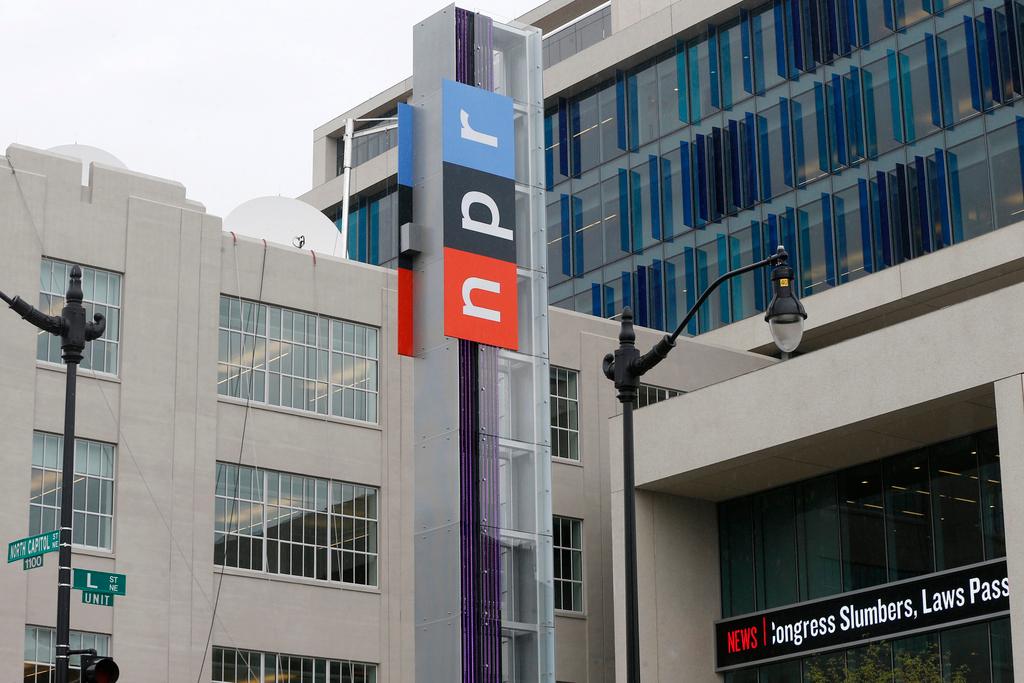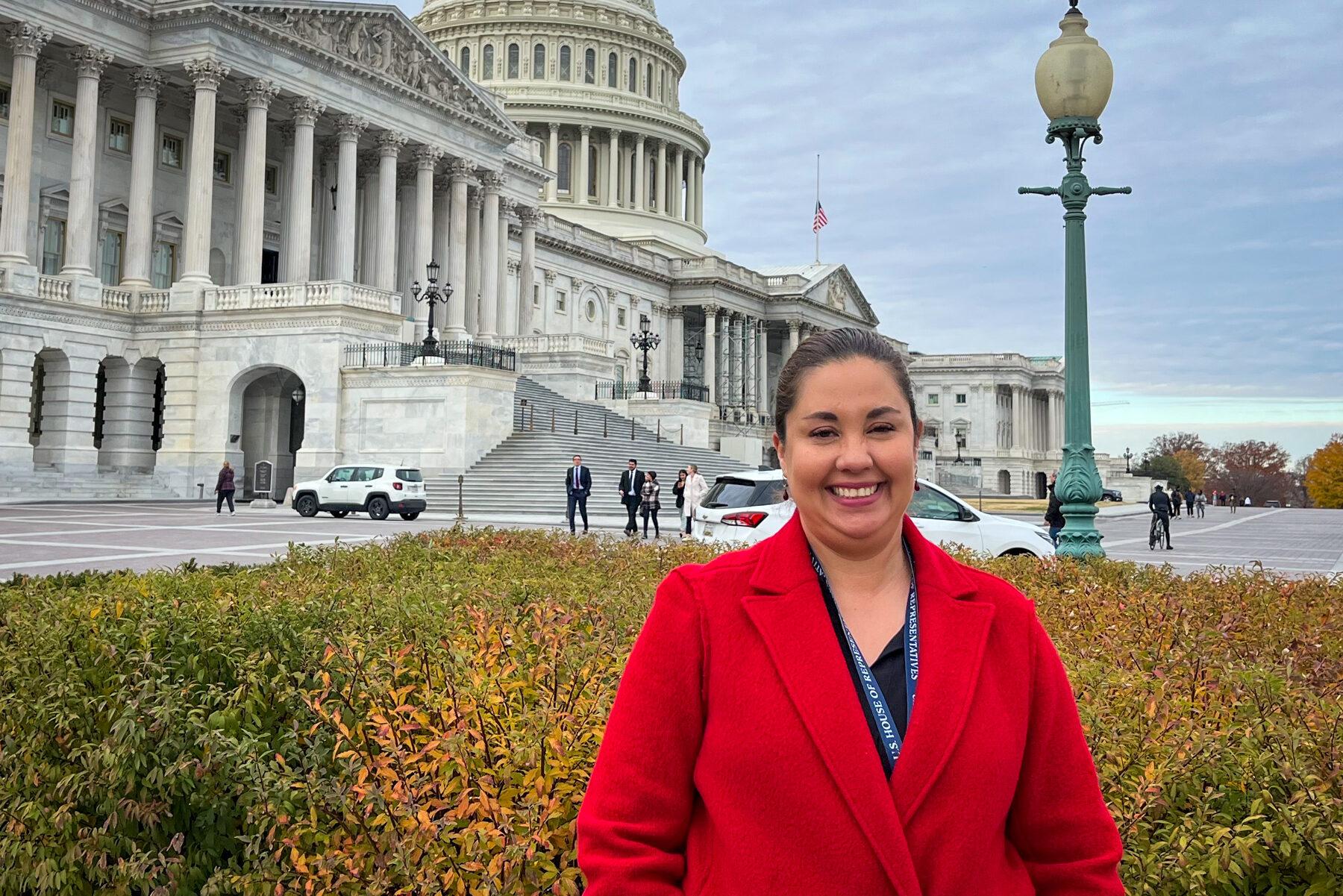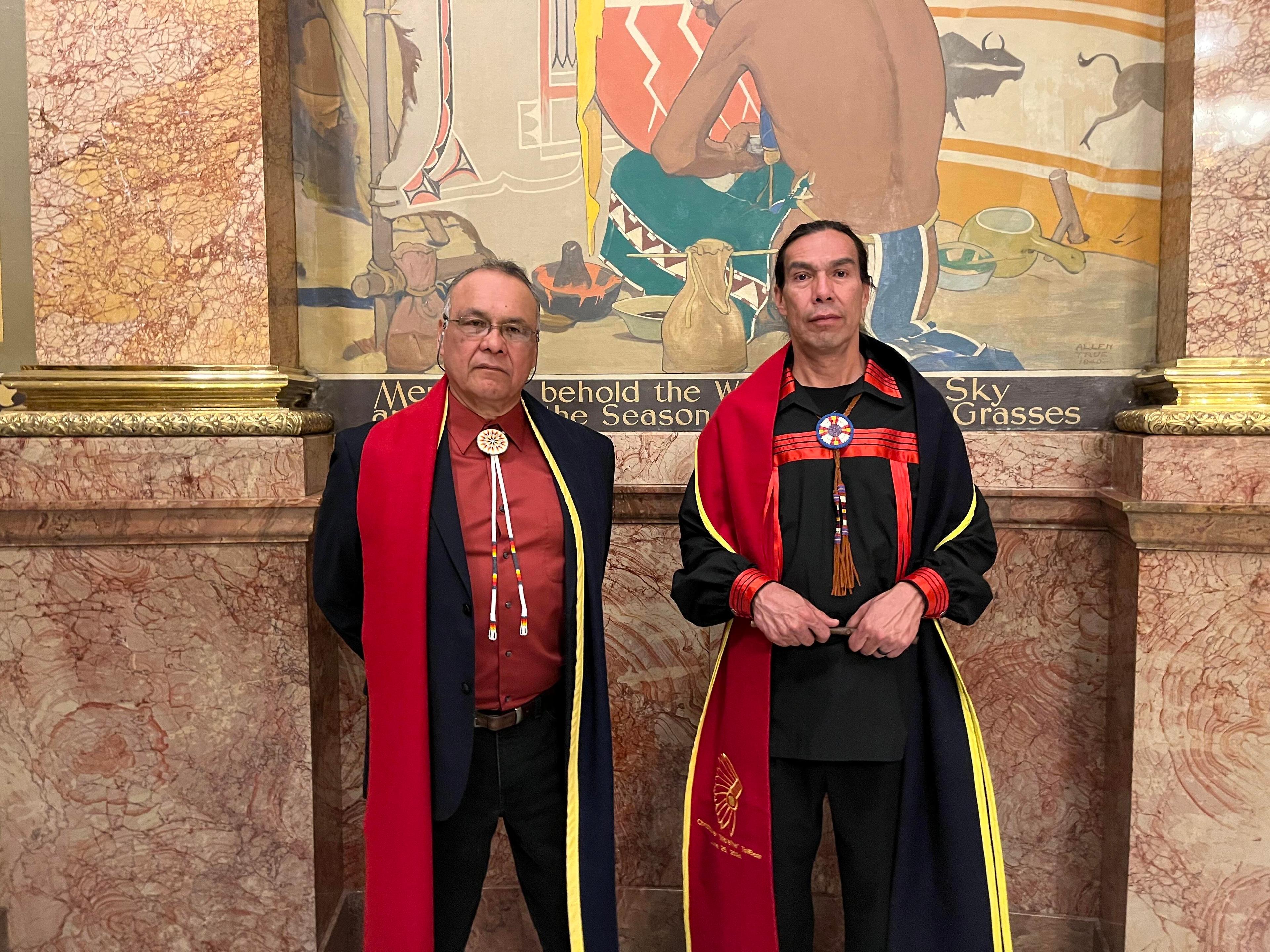
Updated 2/23, 9:34 a.m.
Dozens of people gathered at a Stride Community Health Center clinic in Aurora Friday to hear their representative in Congress, Democrat Jason Crow, deliver an ominous message. He told the crowd that without vocal public opposition, Republicans could well slash federal funding for Medicaid. That’s the $880 billion-a-year state-federal program which covers healthcare for 1.2 million people in Colorado, about a fifth of its population.
Folks who’ve received care thanks to the program described the potential impact of deep cuts as disastrous.
“It's been lifesaving to me because I've seen family members of mine die from complications of organ failure due to diabetes,” said Jean Cisneros, a Lakewood resident who described herself as a grandma, sixth generation Coloradan and diabetic. “I didn't want that for myself, but I didn't have any healthcare.”
A budget plan Congressional Republicans released earlier this month aims to cut spending and boost funding for border enforcement while enacting up to $4.5 trillion in tax cuts.
Many conservatives and Republicans view the Medicaid program as inefficient, expensive and too big.
President Donald Trump said last week in an interview with Elon Musk he would not touch Medicaid, but he has endorsed the budget plan.
But Cisneros said many people will lose healthcare altogether, severely hitting community health centers and the broader health system, if Congress passes deep cuts, she said, describing both community members and patients of the Aurora clinic.
“If it wasn't for Medicaid, a lot of these people, they wouldn't be getting any healthcare," Cisneros said. “It's not fair.”
Rep. Crow told the crowd Medicaid is a vital part of the U.S. healthcare system, imperfect as it is. He called the push to severely cut funding for the program “stupid.”
“Not everybody is in the position of having private health insurance,” he said. “We have a badly broken health industry in America, badly broken. So what happens here is the frontline of healthcare in our community.”
'Speak up, don’t be afraid'
On a tour of the clinic and in remarks at the press conference, clinic leaders and staff described the positive impact Medicaid coverage has on its patients, as well as the danger posed by possible cuts.
Stride is a federally qualified health center. Staff said its mission is to provide comprehensive, compassionate care to everyone regardless of their ability to pay.
“Medicaid is essential to that mission,” said Dr. Megan Adamson, chief of medicine for Stride Community Health Center. “Everyday, Medicaid allows children, seniors, people with disabilities and working families to get the care that they need without having to choose between their health and their basic needs.”
She said it covers preventive services, chronic disease management, mental health care, and lifesaving treatments that many could not afford otherwise.
“Without Medicaid, our most at risk neighbors would face devastating health outcomes and our entire health system would bear the burden,” Adamson said. “Delayed care leads to more emergency visits, higher costs, and poor health for our communities.”
But when people have access to primary and preventive care through programs like Medicaid, she said, they stay healthier, remain in the workforce, and contribute to their communities.
“Healthcare is not a privilege. It is a basic human right, and Medicaid is one of the strongest tools we have to ensure that right is upheld,” she said.

Rep. Crow was asked what community members could do in response to Republican efforts to cut Medicaid, Crow said they should not be silent or unwilling to mobilize and activate the community.
“Speak up, don’t be afraid,” he said. “There's a lot of fear right now, right? Because let's be honest, there are people who want us to be afraid so they can do what they want. And I refuse to give them that power.”
The impact at one community health center
Stride serves 55,000 patients at 13 different sites across multiple counties and the impact of a loss of funding would depend on how deep the cuts go.
If they are substantial, then Colorado will have to drop a lot of people from Medicaid as well as optional services, like long-term care and home services, Adamson said.
“A substantial part of our budget is from Medicaid. And so we would do everything we possibly could, not to close our doors, but we operate 13 different sites,” she said. “It could mean closing sites and really severely cutting back, which would mean that quite a few people would lose services across the system.”
On a tour of the clinic, Crow asked Rosario Morales, the clinic’s manager of program enrollment, what will happen if Medicaid funding for patients is cut. She said it would mean more misery and lives cut short.

“Here's what's going to happen: They're going to stay home. They're going to fall ill. They're not going to want to go to the hospital and accumulate the huge bills,” Morales said. “They're not going to have money to go. So, they're going to go to the hospital when there's nothing left.”
She said hospitals will have to pick up the financial burden of care in the end.
“These patients don't have a way to pay 50, 60, $70,000 worth of care in a hospital. So what's going to happen to the bill? Who's going to pay that bill?” she said. “There's no way. We're going to lose lives.”
Medicaid patients are by definition often low-income and from traditionally underserved communities. Physician’s assistant Bryn Montalvo, the new medical director of Stride’s Peoria clinic, said she wasn’t sure those communities will be able to push back against cuts.
“They don't have the resources to speak. They feel like they don't have the resources or they don't have the knowledge of what is out there to help them and to give them a voice,” she said. “Having a congressman advocate for these people is essential because it helps give them a semblance of knowing that somebody is helping to represent them. And then maybe they will have more awareness of the resources to speak out.”
Editor's note: This story has been updated with details on what Republicans have said about why they want to cut Medicaid and with comment from President Donald Trump on the program.









